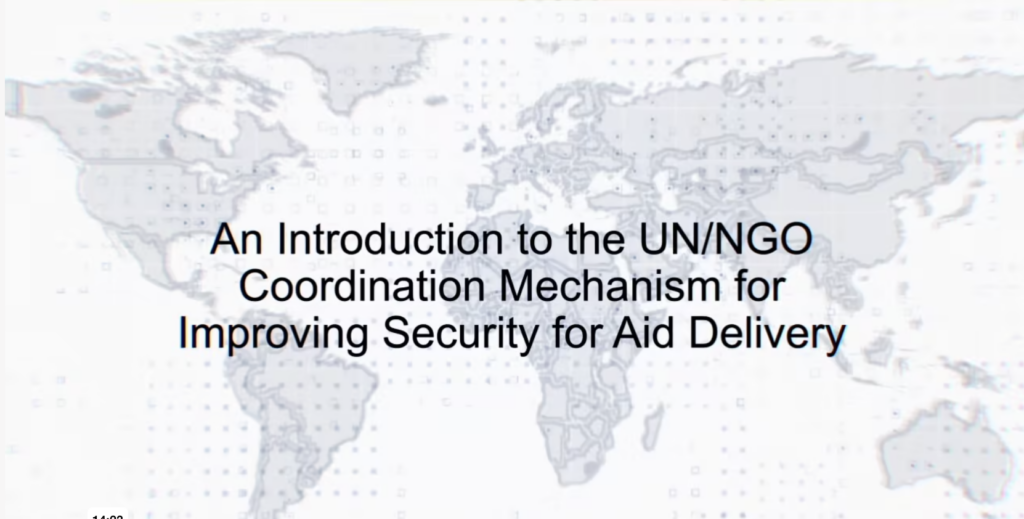This short video provides an introduction to Saving Lives Together (SLT), where it comes from, how it works today and what it offers for Security Risk Management (SRM) in the humanitarian sector. It is ideal for training programmes, team meetings, and other events where staff safety and security is being discussed as well as for individual learning.
The SLT framework was established in 2005 by the Inter-Agency Standing Committee (IASC) to improve cooperation on security issues between the United Nations, non-governmental organizations (NGOs), and international organizations (IOs) that are implementing and/or operational partners of the United Nations. Following extensive consultations, UN OCHA, UNDSS, and UNDP jointly issued, in October 2015, a revised Saving Lives Together (SLT) Framework building on previous iterations.
This video serves to raise awareness and increase the understanding among field practitioners for information sharing, coordination, and collaboration in SRM. It takes a comprehensive approach covering all aspects of the SLT Framework and answers the Frequently Asked Questions (FAQs). The ultimate objective of this video is to address knowledge gaps and misconceptions while broadening access and increasing engagement with SLT among field operators.
The target audience for this video is NGO security professionals, Area/ Field Coordinators, Emergency Response Managers, Country Directors, NGO Forum Representatives, Senior NGO Leadership at HQ with operational positions and their counterparts in UN agencies.
This video was produced with the support of RSM Consulting, a GISF Business Partner.
